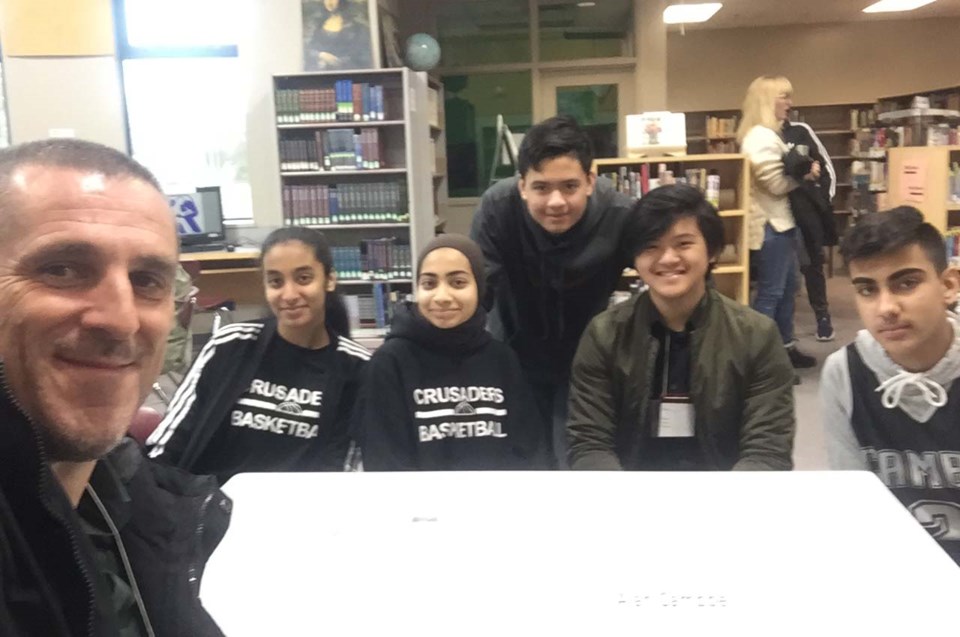“As a journalist, what has shocked you the most?”
Some of the questions were soft balls, a few took me by surprise and one or two, I had to check my cynicism built up over 22 years of reporting, given I was being grilled by half a dozen Grade 9 students in Richmond.
The one mentioned above was probably the most difficult of all, given I’ve likely written in excess of 12,000 stories in my career and sat through some graphic trials during my time as a court reporter in Scotland.
I also had to edit my narration of said “shocking” tale, given the age of my audience and not knowing where the line is with 14 or 15-year-olds.
To be honest, when I agreed to being one of 23 “human books” at the Cambie secondary Living Library, for English and socials teacher June Sanders, I’d no idea what to expect.
The students, some more reserved that others, came to practice their “small talk” and, ultimately, were armed with questions about my life.
And not being a master of small talk myself, there was always going to be a few “radio silence” moments at the table.
For the most part, however, their questions were curious and thought-provoking and I didn’t realize I had so many interesting stories to tell (a relief, given the human book’s criteria was people who have “lived interesting and extraordinary lives”).
It was all part of an interactive event – modelled on a Danish invention called the Human Library - where real people are on loan to readers and a place where “difficult questions are expected, appreciated and answered.”
At the end of it all, the teachers solicit verbal and written feedback from the students, as part of their coursework.
“Trust me, they’re taking in more than you realize,” Sanders told the human books before and after the event.
This was good to hear, as I could have sworn at least half of my audience had checked out over the two-20 minute sessions I opened my “interesting” life up to two different groups.
In fairness to those that were wondering what the hell I was talking about, I do sometimes ramble on when narrating a story from the good old days of reporting.
Throw in a thick Scottish accent into an excitable mix and I recognized all too well that off-in-the-distance gaze washing over a few of the students that I identify with those struggling to keep up.
Although I did see some of them snapping out of their mid-morning malaise when I asked them what brand their cellphone was and then told them I broke the story about the arrest of the Huawei tech boss earlier this year.
And, when prompted, I detailed the pros and cons for mainstream media in using social media platforms to promote our content.
There’s nothing like smartphones and social media to connect us older folks with the kids (insert laughter emoji here).
Asked what she ultimately hopes to achieve with the event, Sanders said simply, “exposure.”
“(Exposure) to people that they may not get a chance to meet in real life…most students’ social networks are limited and this gets them a chance to meet new people.
“In the past, students have asked for the ‘book’s’ contact information, so that they can ask more questions or request mentoring.”
To the “readers” of my “book” last week, I hope you could understand me and I apologize if you felt like nodding off.



